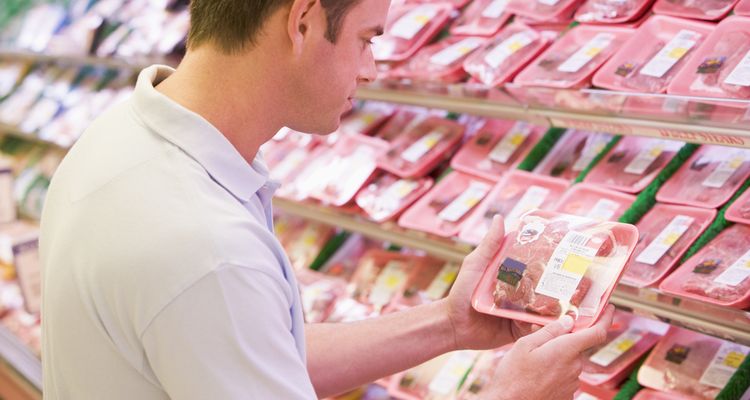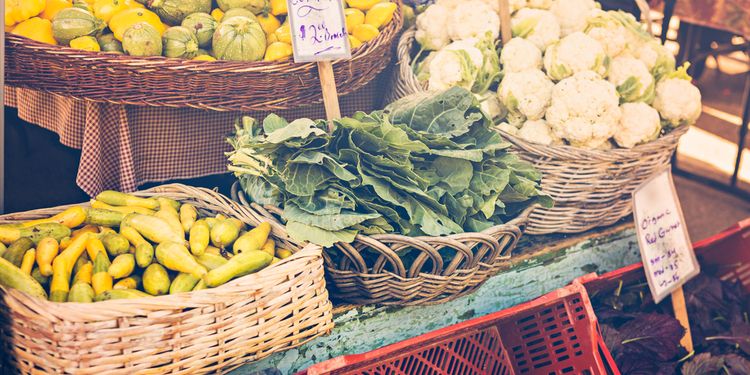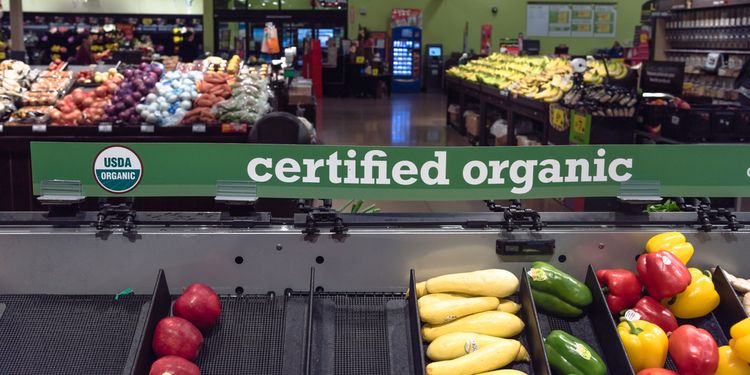3 Reasons To Eat Organic If You’re Working Through Autoimmunity Issues
In today’s modern world, there’s a constant emphasis on growing and selling food as fast as possible. Because of that, compromises occur in order to ensure that food production and appearance are both consistent. But do you know just how toxic your food is? If you’re eating non-organic, the answer is quite frankly ‘no.’

There are important food choices to be made, especially when it comes to those who suffer from an autoimmune disease. Though we have no knowledge of the long-term effects of cumulative exposure to GMO’s, pesticides and herbicides, early reports indicate that avoiding them is certainly the safer choice. As toxin ingestion rates decrease, pressure on the immune system follows suit and your autoimmune condition has a chance to calm down.
While some people are on the fence about spending the extra money to buy organic food, Dr. Amy Myers believes firmly that it’s always a worthwhile investment. With that said, she’s come up with three reasons (amongst many) that might have you willing to spend now in order to save (money and health) later.

1) Pesticides Have a Proven Link To Autoimmune Disease
Toxins of all sorts are hazardous to your health, but pesticides have been proven to be associated with the development of autoimmune disease. A 2007 study revealed that farmers who were working with pesticide-laden crops were more susceptible to developing an autoimmune disease than those working with organic crops.2
The farming industry is only upping the ante in its attempt to thwart insects, by using pesticides of ever increasing efficacy. Insects are often one step ahead however, and the end result is an ongoing race, as farmers spray their crops with copious amounts of pesticides, many of which have been linked to autoimmune diseases. The worst part is that pesticides seep into produce, rendering even the most thorough washing almost entirely useless.

2) Non-Organic Meats Contain Antibiotics and Growth Hormones
Mass-produced livestock and poultry share a discouraging set of circumstances. Born and raised in dreadful conditions, these animals often live caked in their own waste before being slaughtered with little to no concern for anyone’s well-being.
Such animals are pumped full of growth hormones in order to have the fastest possible turnover, and yield more product. More frighteningly, antibiotics are a dietary staple, as the animals’ living conditions are so crowded and dirty. This excessive antibiotic use leads to the creation of super-bugs, which can be very hard to fight off once ingested. Many people who have an autoimmune disease take immunosuppressants, making fighting off these super-bugs even more challenging.

3) Organic Produce Contains More Nutrients
Through various studies, we’ve learned that organic foods are higher in antioxidants and nutrients, while lower in pesticides and heavy metals. In addition, pesticide-free soil ups production of flavonoids, which are important cancer fighting compounds.3,4
How To Go Organic
Switching to organic foods can yield visible health results in as little as a few weeks. But everything from availability to cost is a concern when it comes to organic food. Here are a few thoughts to get you pointed in the right direction.
- Choose grass-fed beef and pasture-raised chicken. Your first priority should be to cut down on meat of questionable origin and quality. You always want to know where and how the animal was raised before eating it.
- Go strictly organic with these 12 foods. EWG (Environmental Working Group) identified 12 foods that on average have the highest concentration of pesticides, and nicknamed them the “Dirty Dozen.” They are: apples, peaches, nectarines, strawberries, grapes, celery, spinach, sweet bell peppers, cucumbers, cherry tomatoes, snap peas and potatoes. Your second priority should be to make sure that you buy these in only the organic variety.
- Go organic with the rest. In addition to the “Dirty Dozen,” EWG also came up with the “Clean Fifteen,” which is a list of foods that are safe to consume when non-organic. Once you’ve mastered the “Dirty Dozen,” your third priority should be to graduate to going organic with the “Clean Fifteen.” This list is made up of: avocados, sweet corn, pineapples, frozen sweet peas, onions, asparagus, mangoes, papayas, kiwi, eggplant, grapefruit, cantaloupe, cauliflower and sweet potatoes.

Where To Buy Organic Food Online
Make a point to buy your fruits and veggies fresh from your local market. As for meat, poultry and seafood, you might not have access to the caliber of food that you desire within a few miles of your home. In this case, there are a few online merchants that offer the quality that you’ll want. US Wellness Meats offers free-range beef, pastured-raised chicken and other foods of the highest caliber. Vital Choice offers wild-caught fish that is second to none. And Thrive Market offers everything in between. This includes not only meat, poultry and fish, but toxin-free household items, gluten-free and organic foods, and more. You no longer have an excuse when it comes to accessibility to good, clean foods.
